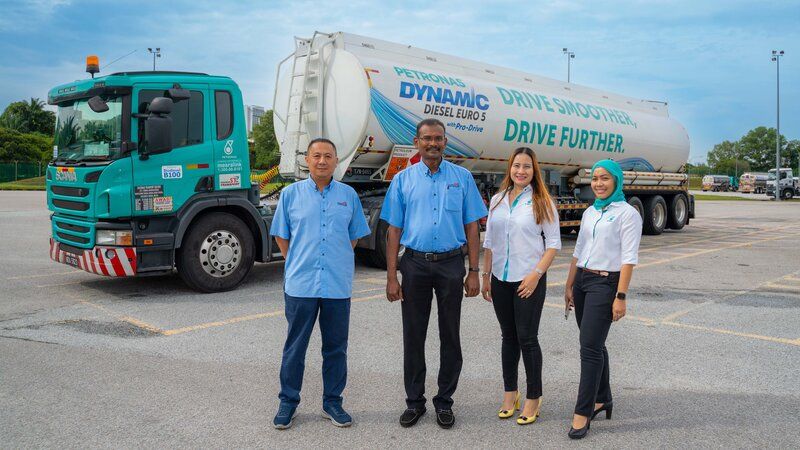Scania Reconfirms Sustainability Credentials of B100 Biodiesel

Scania (Malaysia) Sdn Bhd has reconfirmed the results of an eight-month pilot project carried out in conjunction with global energy giant Petronas and bulk petroleum transporter Shaziman Transport (STSB) to measure the greenhouse gas (GHG) emissions generated when using B100 biodiesel compared with standard B10 commercial diesel. The results of the project showed a huge 75 percent reduction in emissions when using B100 biodiesel, offering significant advantages to fleets in terms of sustainability.
The project is part of Scania’s drive to promote the benefits to fleets of using B100 biodiesel as a means of promoting the shift to sustainable transport systems as part of their Science Based Targets initiative (SBTi). The company has been a leading proponent of the argument that biodiesel presents an immediate solution for reducing carbon emissions, and in 2019 Scania became the first commercial vehicle manufacturer to supply all its truck and buses FAME-prepared as standard, with all diesel vehicles sold in Malaysia being capable of running on any blend of biodiesel from B10 to B100.
“Malaysia is one of the world’s largest producers of B100,” commented Scania’s Driving the Shift Director David Lantz. “The pilot project demonstrates the high quality of the fuel and its capacity to reduce global CO2 emissions whilst maintaining and creating local jobs in Malaysia. Using B100 is the fastest option to decarbonise heavy commercial vehicles as its use reduces CO2 emissions by up to 70 percent and can be used by vehicles that are already on the road. It also carries the smallest possible technology risk as you can always switch back to regular diesel.”
STSB, Scania’s partner in the pilot project, is the biggest bulk petroleum transporter in Malaysia and South-East Asia. With a fleet of 340 vehicles, the company operates through 5 sites located across Peninsular Malaysia distributing petroleum products from North Perak to South Johor.
Between August 2023 to March 2024 the company carried out the project testing the use of B100 biodiesel on four of its Scania P460 6x2 prime movers, each towing a 40 000-litre capacity tanker. The main purpose of the test was to measure GHG emissions generated when using B100 compared to B10 commercial diesel, but the test also looked at fuel efficiency, fuel performance and quality aspects such as acceleration, as well as the impact on vehicle maintenance and driver experience.
The results of the tests showed a 4 percent decrease in fuel efficiency when using B100 biodiesel compared to B10 commercial diesel. However, this was offset by a significant 75 percent reduction in CO2 emissions.
Gunasekaran A/L Muthu, Maintenance Head, Shaziman Transport Sdn Bhd commented: “The pilot test showed that biodiesel offers a low carbon solution which can significantly improve the sustainability of our operation by reducing our carbon emissions. This is a key benefit for operators and for future generations. Yes, it increases our cost, but we need to take care of the environment, and we hope the government will compensate us for our contribution to the future of sustainable transport and for our support of the palm oil industry in Malaysia.”
At the same time, the tests showed no difference in vehicle performance when using B100 compared to B10.
Hardeep Singh Kirpal Singh, Head of Commercial Business, Petronas Dagangan Berhad explained: “During the test, B100 fuel performance showed itself to be comparable with B10, with no hiccups or jerking, and with smooth acceleration. There is also no significant difference in terms of maintenance intervals, with Scania recommending intervals of 25 000km if run on B100.
“Overall, our main objective with these tests has been met, as we have been able to reduce our Scope 1 GHG emissions. Every green initiative, including sustainable or renewable fuel comes with a cost, but for those who are serious about reducing their GHG emissions, using B100 biodiesel is definitely worth it,” he added.
Considering the additional benefits of switching to B100 biodiesel David Lantz commented:
“We expect diesel prices, on average, to increase by 50 per cent, and the subsidies are starting to phase out starting this year. When you take that into consideration as well as current palm oil prices, we estimate the cost premium of running a vehicle on B100 is as low as five percent to ten percent compared to B10 diesel,” he concluded.









